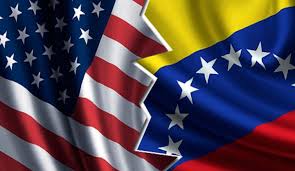Venezuelan Interior Minister Accuses Washington of "Extrajudicial Executions" After Military Strike on Boat

Venezuelan Interior Minister, Diosdado Cabello, accused the United States of carrying out "extrajudicial executions" in response to a U.S. military attack on a boat in the Caribbean, which Washington claimed was loaded with drugs and coming from Venezuela.
The accusations came during Cabello's appearance on a television program on Wednesday, where he said: "They killed 11 people without going through the judiciary. I wonder if this is acceptable." He condemned the operation, considering that "any suspicion of drug trafficking does not justify extrajudicial executions at sea."
The Venezuelan minister added, questioning: "The matter is not clear, they have not clarified anything, they arrogantly announce that they killed 11 people. This is very sensitive. And what about the right to defense?".
This response comes one day after U.S. President Donald Trump announced that U.S. forces attacked the boat, resulting in the death of what he described as "11 drug terrorists" from a gang linked to Venezuelan President Nicolás Maduro.
This military action represents a significant escalation in Washington's strategy against drugs, which began with Trump's signing of an executive order allowing the military to be used against drug cartels.
For its part, the U.S. administration reaffirms its accusations against President Maduro of running a drug trafficking network, recently doubling the reward for his capture to $15 million.
In a sign of escalation, U.S. Secretary of State Marco Rubio, while leaving Miami for Mexico on Tuesday, confirmed Trump's intention to use "all the power" of the United States to "eradicate" drug cartels. Rubio told reporters: "Trump has been completely clear that he will use the full power of America to confront and eliminate drug cartels, regardless of where they operate."
In contrast, Venezuelan President Maduro warns against any U.S. military landing, asserting that Venezuela is prepared "for armed struggle to defend its national territory," at a time when the United States has not publicly threatened to invade the country.